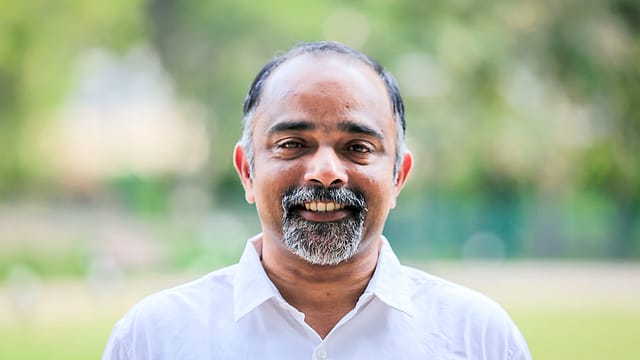We are patient investors: Villgro
ADVERTISEMENT

Villgro was one of India’s first incubators to mentor and fund early-stage social startups in critical areas like health, education, agriculture, and green energy. Villgro has invested in 300 companies, and founder and chief executive officer Paul Basil says one-fourth of these have raised significant follow-on capital and are growing well, while another half of these firms are profitable but not growing; the rest are yet to reach scale. He says Villgro set up a ₹50-crore venture capital fund, Menterra, in 2016 to invest in some of the companies it incubates, and has started roadshows to raise $100 million for the second fund. In an interview with Fortune India, Basil says the social enterprise incubator bets on projects that blend scalability and profitability with social impact. Edited excerpts:
How does social impact, profitability, and scalability of a business guide your investment bets as you try to solve the riddles of inequity and financial inclusion in a diverse country of 1.2 billion people?
Our investment strategy operates at the very intersection of inherent social impact, market opportunity, business viability, and innovation. The four sectors we work in—agribusiness, healthcare, education and employability, and renewable energy—are large sectors with tremendous scope for investment and impact.
While the lower middle class is moving up the economic ladder, the quality of life or the gap between the ‘haves’ and ‘have-nots’ has not narrowed much. What pockets of opportunity do you see emerging in the backdrop of current economic challenges?
A lot of our sub-sector focus areas exist in these pockets of opportunities. Skill development and employability is one, using energy to generate income for BoP [base of the pyramid segment] through productive use is another. In healthcare, we support low-cost medtech devices designed for those who need them the most. And our entire focus within agribusiness is on small and marginal farmers.
January 2026
Netflix, which has been in India for a decade, has successfully struck a balance between high-class premium content and pricing that attracts a range of customers. Find out how the U.S. streaming giant evolved in India, plus an exclusive interview with CEO Ted Sarandos. Also read about the Best Investments for 2026, and how rising growth and easing inflation will come in handy for finance minister Nirmala Sitharaman as she prepares Budget 2026.
You have invested in about 300 enterprises in the past 18 years. Can you take us through the current size, growth, and profitability of these companies at large?
In the past 20 years, the companies we have incubated have gone on to raise Rs 1,796 million [₹179.6 crore] in follow-on investments, created over 3,600 jobs and impacted 20 million lives.
Which portfolio companies stand out in terms of impact, profitability, growth, creation of jobs and an overall improvement in livelihoods?
Some of the former incubatees include Skymet, Promethean Power, UTMT, 5C Network, and Bempu; and some of the current ones include Krimanshi, CoolCrop, Promorph, BharatRohan, Bookmybai, and Janitri.
In your experience and interactions with social entrepreneurs, where is the problem when it comes to employment, as India’s unemployment rate is at a three-year high of 8.5%?
Skilled labour! That was one of the reasons why we started focussing on employability and hence incubating startups with innovations that enable upskilling/cross-skilling, wage enhancement, and job mobility of blue-collar workers.
As I understand, between 2001 and 2013, the incubation services to the companies you supported were largely funded by grants, private family foundations, quasi-federal government agencies, and corporate social responsibility. Does this continue to be the main source of funding?
Yes
You typically invest in companies at the pre-seed level and exit around the series A round of funding. What capital gains or returns have investors seen over the years?
Most of our funding has been through grants, with some through equity. On an average, our companies have been able to attract follow-on funding where our capital has been leveraged upward of 10x. In the exits from companies where we had equity investments, so far we have been tracking 20% + IRR [internal rate of return]
You have invested in close to 20 companies in Africa, and Southeast Asia. What’s the strategy to scale presence in new geographies? Typically which segments look attractive and how have financial returns been so far?
We currently focus on East Africa based out of Nairobi, and on Southeast Asia based out of Manila. We began supporting companies in the healthcare sector in East Africa from 2015. It is too early to go for an exit—we are patient investors.
